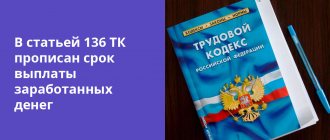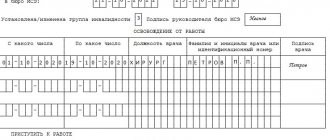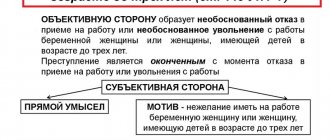Peculiarities
It is possible to enter someone else's residential premises (Article 25 of the Constitution of the Russian Federation) only under the following conditions:
- Permission from the owner or resident.
- In the case where this is established by federal law.
- When a court decision is made.
Immunity to housing extends only to those categories of citizens who can document their belonging to this home. This right applies to the following citizens:
- Owner.
- Citizens living under a lease, sublease or rental agreement.
- Persons living temporarily in an apartment or house at the will of the owner legally.
According to Article 139 of the Criminal Code of Russia, the following real estate belongs to housing:
- Apartment.
- A room in a hostel or hotel.
- Individual residential construction project.
- Garden house or change house.
- Prefabricated houses.
- Residential buildings intended for housing workers at construction sites.
In other words, this is a living space where a person lives and stores his belongings, property or documents. The exception will be outbuildings in the form of a cellar, barn, as well as structures erected without permission from authorized bodies.
Violation of the inviolability of the home (Article 139 of the Criminal Code)
The object of the crime is the constitutional right of citizens to the inviolability of their home. The objective side of the crime is expressed in the illegal entry of the perpetrator into the home of another citizen against his will. A dwelling is a premises that is used by citizens for their residence (apartment, dacha, house, etc.).Trespass is any unlawful entry of a person into a home against the will of another person. Legal entry into a home is recognized as cases established for a search (based on the sanction of the prosecutor) or a court decision (on confiscation of property), or in the event of a natural disaster (fire, flooding, etc.).
The crime is considered completed from the moment the perpetrator enters the home against the will of the victim, regardless of the method of entry (openly, secretly).
From the subjective side, a crime can only be committed intentionally (direct intent). The motive is self-interest, revenge, etc.
The subject of the crime is a person over 16 years of age (Part 1). A qualified type of this crime are acts committed by a person using his official position. Special subject (part 2) (for example, law enforcement officers, house management, etc.).
Crimes against constitutional rights and freedoms of man and citizen
- Violation of equal rights of citizens (Article 136 of the Criminal Code)
- Violation of privacy (Article 137 of the Criminal Code)
- Violation of the confidentiality of correspondence, telephone conversations, postal, telegraph or other messages (Article 138 of the Criminal Code)
- Violation of the inviolability of the home (Article 139 of the Criminal Code)
- Refusal to provide information to a citizen (Article 140 of the Criminal Code)
- Obstruction of the exercise of electoral rights or the work of election commissions (Article 141 of the Criminal Code)
- Falsification of election documents, referendum documents or incorrect vote counting (Article 142 of the Criminal Code)
- Violation of labor protection rules (Article 143 of the Criminal Code)
- Obstruction of the legitimate professional activities of journalists (Article 144 of the Criminal Code)
- Unreasonable refusal to hire or unjustified dismissal of a pregnant woman or a woman with children under 3 years of age (Article 145 of the Criminal Code)
- Non-payment of wages, pensions, scholarships, benefits and other payments (Article 145.1 of the Criminal Code)
- Violation of copyright and related rights (Article 146 of the Criminal Code)
- Violation of inventive and patent rights (Article 147 of the Criminal Code)
- Obstruction of the exercise of the right to freedom of conscience and religion (Article 148 of the Criminal Code)
- Obstruction of an assembly, rally, demonstration, procession, picketing or participation in them (Article 149 of the Criminal Code)
Forced entry
The law provides for a number of situations when breaking into an apartment or other living space is a necessary measure. Such circumstances include the elimination of danger that may pose a threat not only to the interests of the individual and society, but also to the state.
In extreme situations, the following have this right:
- Firefighters extinguishing fires.
- Employees of the Ministry of Emergency Situations and law enforcement agencies.
- Representatives of management companies that ensure the operation of house communications.
What will be the procedure if an emergency situation arises that requires entry into a home when there are no residents living there for a long time?
Housing legislation considers this situation in this way: it is possible to enter someone else’s territory of an apartment or household, provided that other methods do not bring the required effect.
ATTENTION! According to criminal law, burglary is permitted only to the extent of causing damage that will not exceed the damage from the accident.
According to the Russian Housing Code (Article 3), invasion of a home without the permission of living citizens can only occur in those situations prescribed by federal law, and only in cases where it is necessary to save citizens and their property.
Home invasion is also permitted against citizens who are suspected of committing illegal actions that entail criminal liability.
It is worth noting that the management company will not be responsible for breaking the lock mechanism in the situations described above, provided that the situation endangered neighboring property.
Police officers, if they have a special warrant, have the right to freely enter an apartment or house, since they are responsible for maintaining order and detecting crimes. They are allowed to enter the territory for the purpose of carrying out operational search activities, including searching for citizens who have committed illegal actions.
The bailiff can also enter the residential area without inviting the residents, provided the appropriate documentation is available . However, the time frame for them is from 6 a.m. to 10 p.m.
Watch the video: Article 139 of the Criminal Code of the Russian Federation. Violation of the inviolability of the home
ATTENTION! In case of entry into an apartment or house without legal grounds by police officers, judicial authorities or representatives of the management company, it is envisaged to apply to the judicial authorities with a statement.
Commentary on Article 139
1. In accordance with Art. 25 of the Constitution of the Russian Federation, no one has the right to enter a home against the will of the persons living in it, except in cases established by federal law, or on the basis of a court decision. One of the guarantees of the inviolability of the home is the criminal legal protection provided for in the commented article. In Art. 136 of the Criminal Code of the RSFSR contained specific references to an illegal search, illegal eviction or other illegal actions that violate the inviolability of citizens’ homes. Article 139 of the Criminal Code contains more general wording, which also covers cases provided for by the previous Criminal Code.
2. Unlawful entry is any entry into a home without the consent of the person living there under any pretext; this constitutes the objective side of this crime, provided that there are no grounds for legal entry.
3. Plenum of the Supreme Court of the Russian Federation in paragraph 2 of the resolution of December 24, 1993 “On some issues related to the application of Art. 23 and 25 of the Constitution of the Russian Federation,” obliged the courts to consider materials confirming the need to enter a home and make appropriate decisions on this issue (see Sat. Post. Plenum of the Supreme Court of the Russian Federation. 1991 - 1993. M., 1994, p. 333 - 334). A study of practice shows that such materials are an investigator’s decision on the need to conduct a search, a letter to the court from the head of the investigative unit or the prosecutor. Other materials may also be sent to the court. It seems that the legal basis for entering a home is also a writ of execution issued on the basis of a court verdict, for example, for an inventory of property by a bailiff in connection with the confiscation of property or for compensation for damage caused by a crime.
4. Taking into account what is stated in paragraphs. 1 - 3 comments to this article, in our opinion, until the adoption of the new Code of Criminal Procedure, the investigator retains the right to conduct a search in urgent cases, without a judge’s decision, taking into account the fact that the Code of Criminal Procedure of the RSFSR (Article 168) is a federal law. Let us note that the published draft of the Code of Criminal Procedure of the Russian Federation retains the investigator’s right to conduct a search immediately, if the circumstances of the case require it, with subsequent notification of the judge (see Legal Bulletin, 1995, No. 31). In this situation, a search carried out in urgent cases and confirmed by a judge should not be considered in the sense of the commented article. 139 of the Criminal Code for cases of illegal entry into a home.
5. Illegal entry into a citizen’s home also includes the eviction of a citizen from the premises legally occupied by him, the temporary use of residential premises for any purpose in the absence of the owner or user of the home, etc.
6. The crime is completed from the moment of illegal entry into the home.
7. The crime provided for in Art. 139 of the Criminal Code, can only be committed with direct intent, when the subject realizes that he is violating the inviolability of the home and desires it.
8. The subject of a crime can be a person over 16 years of age.
9. On the use of violence or the threat of its use, see the commentary to Art. 131 CC.
10. On the use by a person of his official position as a circumstance aggravating illegal entry into a home, see the commentary to Art. 136, 201, 285 of the Criminal Code.
Scientific and practical commentary:
1. Article 25 of the Constitution of the Russian Federation guarantees the right to inviolability of home. No one has the right to enter a home against the will of the persons living there, except in cases established by federal law, or on the basis of a court decision. 2. To enter a home means to get inside (enter the boundaries of the home), to gain access for this (break a lock, open the door with a stolen, selected or made key, break or open a locked window, make a hole in the wall, etc.). Methods of penetration can be both open and secret. 3. Signs of a dwelling are indicated in the note to Art. 139. When defining housing, premises intended for permanent or temporary residence should be distinguished from premises used for temporary residence. For example, a warehouse, basement, attic or other space adapted for a homeless person to live in is not considered a dwelling. When characterizing a home, the legislator focused on its recognition as a premises. The crime provided for in Art. 139, the constitutional rights of people to the inviolability of their home are violated, therefore, entry into a premises intended for permanent or temporary residence (an empty apartment in a new building), owned by someone, cannot be qualified under Art. 139. It is illegal to enter a home if it is carried out against the will of the persons living there (except for cases established by federal law or on the basis of a court decision). Violation of the inviolability of the home in the presence of signs of arbitrariness in these actions forms a set of crimes. 4. The crime is considered completed from the moment the action specified in the law is committed. 5. The subjective side is characterized by direct intent. 6. The subject of the crime is a person who has reached the age of 16 years. 7. As a qualifying feature in Part 2 of Art. 139 of the Criminal Code specifies the use of violence or the threat of its use. This sign determines the method of illegal entry into someone else’s home: beatings, harm to health, the use of physical force to suppress the victim’s resistance, as well as the threat of committing these actions. In cases where illegal entry into a home was committed with the use of violence (or the threat of its use), causing moderate or serious harm to health, the act must be qualified under Part 2 of Art. 139 and art. 111 or art. 112 of the Criminal Code. 8. The commission of acts provided for in Parts 1 and 2 of the commented article by a person using his official position is a particularly qualifying circumstance (Part 3 of Article 139).
Types of liability
Violation of the inviolability of a residential property is subject to criminal penalties. Such
The actions are not considered a serious crime, but committing one can result in imprisonment. Entry is considered a criminal offense if certain conditions are met, namely if it occurred in the following ways:
- Picking the lock on the door.
- Free penetration.
- Intrusion through a window opening.
- Using coercive actions against living citizens.
- By deception, as well as by taking advantage of his official position.
At the moment, based on the norms of the Russian Criminal Procedure Code, a case of breaking and entering can only be initiated if the victim has filed a statement.
Closed day
No, of course, no one has canceled the Constitution of Russia with the right of citizens to the inviolability of their home declared in it. Any stranger, including a policeman or any other law enforcement or intelligence officer, may cross the threshold of a private apartment, house or plot of land only with the permission of the owners. Or - by decision or with the sanction of the judge.
That is, a search of a residential premises, especially a storming of it, is usually coordinated with prosecutors and courts. Typically, but not always. The Police Law also stipulates unauthorized visits by police officers.
Such intrusions happen from time to time. In Yakutsk, for example, the police stormed an apartment in which a madman had barricaded himself, taking his own relatives hostage. The client of the psychiatric dispensary was armed with a hunting rifle, did not make clear demands and could start killing people at any moment. Every second was precious and the police had no time to communicate with judges and prosecutors.
There was no time even for a detailed study of the operation. The employees launched an assault as soon as they realized who they were dealing with. The psycho was disarmed, but he managed to wound one policeman.
There are other, less heroic examples of unauthorized entry into someone else's home by police officers.
In Moscow, several years ago, local police officers tried to suddenly shut down a drug den, but they found the wrong apartment. The result is a broken door and an injured tenant, who has nothing to do with drug dealers. And in the Moscow region there was a case when two employees broke into the apartment of a conscript evading service without any sanctions, beat him and forcibly took him to the military registration and enlistment office. Is it any wonder that the legal right of police officers to enter someone else’s home without the permission of the residents or a court decision causes a very mixed reaction in society.
Of course, the law strictly limits this right. A police officer can, without the permission of the owners or a court decision, break into a private house or apartment, even break down a door or window, only in the most urgent cases. For example, if a crime is currently happening in this premises - violence or murder is being committed, someone urgently needs help and there is simply no time to obtain any sanctions. The same applies in the event of an obvious emergency, say, during a riot, terrorist attack, natural disaster or man-made disaster.
However, as experts have found out, not everything is so simple. The current law leaves room for police abuse, and therefore there is room for infringement of our civil rights.
The Legislative Assembly of the Leningrad Region introduced a new bill to the State Duma. Doctor of Law, Honored Lawyer of Russia Ivan Solovyov confirmed to the correspondent of Rossiyskaya Gazeta that the authors of the legislative initiative believe that the current norms regulating the right of police officers to extrajudicial violation of the inviolability of the home allow for a broad interpretation and the possibility of abuse.
— The draft establishes a list of urgent cases when the entry of police officers into residential premises is possible without a court decision: to save the lives of citizens and their property, to detain persons suspected of committing crimes of medium gravity, serious and especially serious crimes and to actually suppress these crimes,” said Ivan Soloviev.
It turns out that a police officer can enter a private home without demand or sanctions if he suspects that any crime is taking place there, for example, counterfeiting money or organizing a gambling game. Or, there is a person suspected of an offense - say, a malicious alimony worker. It is proposed to clearly outline the range of crimes in terms of their severity and danger, in which the police can act without prior approval.
And the developers of the bill were also bewildered by the provision of the law that allows police officers to break in without permission in the event of mass riots and natural disasters. Everything seems to be correct, but who determines that riots or an emergency have begun? The authors of the project propose to oblige the police to act in such a non-standard way only after the authorities declare the corresponding conditions. For example, when applying the Federal Law “On State of Emergency”, conducting a counter-terrorism operation in a specific territory, imposing a curfew or martial law.
The bill stipulates that the judge and the prosecutor must be notified of each case of police officers entering residential premises and land plots without a court decision within 24 hours from the moment it begins. The current law so far states that in the event of entry against the will of the citizens located there, only the prosecutor is notified in writing within 24 hours.
According to the developers of the bill, appropriate amendments should be made not only to the law “On the Police,” but also to the law “On the Investigative Committee of the Russian Federation” and to the Housing Code.
Video: Criminal liability for home invasion
The article was prepared by lawyer on family and civil issues Anton Nikolaevich Shcherbak
If the article was useful, please like it and add it to bookmarks.
If you do not find the information you need, you can get FREE legal advice on our website. Leave your question in the comments or contact a site consultant.
Commentary on Article 139 of the Criminal Code of the Russian Federation
The Constitution of the Russian Federation (Article 25) determines that housing is inviolable. No one has the right to enter a home against the will of the persons living there, except in cases established by federal law, or on the basis of a court decision made in accordance with it. Social relations arising in connection with the implementation of this constitutional right constitute the main object of criminal encroachment prohibited by the article in question of the Criminal Code of the Russian Federation.
In the qualified elements of the crime under consideration, an additional object should be highlighted, which can be health, integrity, freedom, personal safety (Part 2 of Article 139 of the Criminal Code of the Russian Federation), the legally regulated activities of state authorities, local governments, as well as the interests of the public service, service in a commercial enterprise, institution, organization (Part 3 of Article 139 of the Criminal Code of the Russian Federation).
The subject of the crime is housing, which is understood as an individual residential building with residential and non-residential premises included in it, residential premises, regardless of the form of ownership, included in the housing stock and suitable for permanent or temporary residence, as well as other premises or buildings not included in the residential premises fund, but intended for temporary residence.
This can be an individual house, apartment, room in a hotel or hostel, dacha, garden house, prefabricated house, change house or other temporary structure, specially adapted and used as housing during the construction of railways, power lines and other structures in survey parties, hunting industries, etc.
Dwellings do not include outbuildings, cellars, barns, garages and other premises separated from residential buildings and not used for human habitation. A train compartment or a ship's cabin cannot be classified as a dwelling, even a temporary one, since a train and a ship are vehicles.
The fundamental right to the inviolability of the home is possessed by persons entitled to the right of use or ownership of the occupied residential premises as a place of residence or place of stay, which is confirmed by title documents (lease agreements, rental agreements, sublease, sublease, warrant, certificate of ownership, etc.). etc.) or officials, as well as title holders, as well as persons moved into residential premises (including temporarily) at the will of those living in it on a legal basis. All of these persons can be considered victims of this crime. These should also include persons who were legally in the home and to whom violence or the threat of violence was used when entering the home.
From the objective side, the crime in question is characterized by an active form of behavior in the form of illegal entry into a home against the will of the person living in it.
The method of entry into the home does not matter to qualify the main elements of the crime in question. It can be open or secret, committed in the presence of persons living there or other people in the home, or in their absence, and include both direct entry of a person into the home and control of the home from the inside using special technical means.
At the same time, the use of deception and abuse of trust to enter a home does not form the crime under consideration, since in these cases a person enters a home at the will of the person living in it, although he was misled regarding certain circumstances.
The corpus delicti is formal. The crime is over from the moment of penetration into the home.
From the subjective side, a crime is characterized by guilt in the form of direct intent. The perpetrator realizes that he is illegally entering a home without the consent of the persons living there, and wants to commit this entry. In a qualified personnel, in addition, the person is aware that his entry is associated with the use of violence or the threat of its use, or that illegal entry into the home is carried out using his official position, and wants to carry out these actions.
Subject of crimes provided for in Parts 1 and 2 of Art. 139 of the Criminal Code of the Russian Federation, general. He is a sane person who has reached the age of sixteen, and the subject of the crime provided for in Part 3 of this article is a special person - a person who uses his official position to enter a home.
The qualified elements of the crime in question (Part 2 of Article 139 of the Criminal Code of the Russian Federation) provide as its mandatory feature a method of illegal entry into a home - the use of violence or the threat of its use.
Violence is understood as physical influence on the victim, expressed in the suppression and elimination of his resistance, striking, beating, and deliberately causing minor harm to health.
The threat of violence is understood as a mental impact on the victim, expressed in a demonstration of readiness to inflict blows, beatings, or intentionally cause harm to health.
Causing serious or moderate harm to the health of the victim when entering a residential premises is classified as a combination of crimes with crimes against health (Article 111 or 112 of the Criminal Code of the Russian Federation). The threat of murder or infliction of grievous bodily harm (Article 119 of the Criminal Code of the Russian Federation) is covered by the crime under consideration and does not require additional qualifications.
Violation of the inviolability of a home, although against the will of the person living in it, but based on the provisions of the Law “On the Police”, the norms of the Code of Criminal Procedure of the Russian Federation, the Federal Law “On Operational-Investigative Activities”, etc. does not form the crime under consideration. Thus, the use of the right to unhindered entry into it and its inspection in the pursuit of persons suspected of committing crimes, or if there are sufficient grounds to believe that a crime has been or is being committed there, or an accident has occurred, does not constitute a violation of the inviolability of a home.
——————————— <1> See: clause 18 of Art. 11 of the Law of the Russian Federation of April 18, 1991 N 1026-1 “On the Police” // Gazette of the SND of the RSFSR and the Supreme Court of the RSFSR. 1991. N 16. Art. 503.
It is not a violation of the inviolability of a home to carry out operational search activities involving entry into it with the consent of at least one of the persons living in it or in their absence, but with the permission and in the presence of the administration of a hotel, sanatorium, holiday home, boarding house, camping, tourist base, other similar institution, if such activities are not related to the search, inspection of things, property belonging to persons permanently or temporarily residing in them, and provided that entry into the premises in their absence by representatives of the administration is provided for by the rules of stay (residence, internal regulations ) or the terms of the contract (cleaning the premises, repairing plumbing equipment, etc.).
If penetration into a home is a method of committing another crime and is its qualifying feature, for example, theft, robbery, robbery (Articles 158, 161, 162 of the Criminal Code of the Russian Federation), then such an act does not form a set of elements of a crime and additional qualifications under Art. 139 of the Criminal Code of the Russian Federation does not require it.









